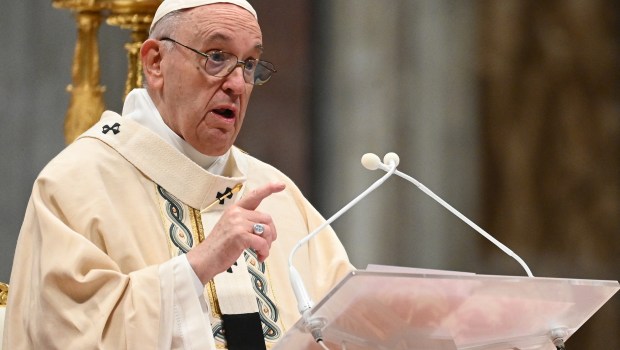Lenten Campaign 2025
This content is free of charge, as are all our articles.
Support us with a donation that is tax-deductible and enable us to continue to reach millions of readers.
Pope Francis is about to embark on his 35th apostolic journey abroad, which will take him first to Cyprus, from December 2 to 4, and then to Greece, until December 6. In Cyprus, he will have the opportunity to meet with refugees and migrants during an ecumenical prayer service on December 3 at a church in Nicosia.
Franciscan Fr. Jerzy Kraj has been the patriarchal vicar of Cyprus within the Latin Patriarchate of Jerusalem since 2013. He is one of the organizers of the Pope's visit to the island. He spoke to I.MEDIA a week before the arrival of the Argentine pontiff.
Here are excerpts of our conversation.
Pope Francis will spend two days in Cyprus. What will be the highlights of his visit?
The most important moment of this visit will certainly be the mass at the GSP stadium in Nicosia. In this stadium, which is the largest in Nicosia, we have 7,000 seats ready to be occupied by the faithful. We didn’t invite only the Catholics (the Latins and the Maronites); we invited the Cypriots. Among them, some Muslims have accepted the invitation. It’s not a problem that it’s a Catholic celebration.
Another important moment in my estimation will be the ecumenical prayer service with the presence of migrants and refugees. It will take place on December 3 at 4 pm with all the representatives of the Christian communities of the island: Orthodox, Armenian, Anglican, Evangelical, Latin, and Maronite. This will be Pope Francis' last celebration on the island.
I think there will be about 150 people in the church, including about 60 migrants. These people are mostly asylum seekers, not necessarily Christians. Many come from Africa: Algeria, Nigeria, Congo or Cameroon. There are also some who come from Syria. There will also be Filipinos and Sri Lankans who work here in Cyprus. They are economic migrants who have regular visas.
The Pope is coming above all to listen to them. Two people will come to testify before the Holy Father.
Could Pope Francis bring migrants back with him?
We’re working on this process. We hope so, but I don’t have precise details. Symbolically, the Pope could bring back a group of refugees to signify the opening of humanitarian corridors. This would be a reminder of the need to help migrants in a concrete way; it would be an echo of the gesture made during his previous trip to Greece.
Can Pope Francis' trip also be called an "ecumenical trip?"
Of course. Pope Francis is coming to the peripheries, to the peripheries of Europe, to the peripheries of Christian communities. On December 3, there will be a meeting with His Beatitude Chrysostom II, Orthodox Archbishop of Cyprus. He will deliver a speech in the Orthodox Cathedral before the Holy Synod. There will also be a prayer with the Orthodox as a sign of dialogue and openness. The Pope is coming to see, to sow seeds for greater mutual understanding among Christians.
In Cyprus, could Pope Francis send a message for the unity of the island?
I don't think he’ll do so directly, but one of the Pope's messages could be to seek dialogue and understanding between people. As he often does, he could call for building bridges, not walls, and explain that we must recognize the dignity of each person.
In this way, he could encourage us to work to live in peace and harmony, following the example of St. Barnabas, the symbol of this journey, whose name means "son of consolation."
How many Catholics live in Cyprus?
The Catholic community in Cyprus has two groups: the Latins and the Maronites. According to statistics compiled in 2011, there are about 25,000 Latins and 5,000 Maronites. The numbers have probably moved, but I don't think there’ve been great changes.
A large number of Latins are workers from abroad, mainly from the Philippines, India, Sri Lanka and then also from some European countries. So our Latin community is made up of different cultures, languages and backgrounds. This is a very important element for us.
In the northern part of the island, there are also Christians living in communities, especially students, mainly Africans. They’re not allowed to cross the border because they arrived in Cyprus with a visa from the Turkish Republic of Northern Cyprus. They cannot go to Cyprus to participate in our celebrations. So every Sunday we go to the north to celebrate mass in three different places. We meet about 500 faithful there every Sunday.
So some Christians are not allowed to cross the border from north to south?
This is a problem related to visas that are not granted, for political reasons. This concerns people who have arrived through this area under the jurisdiction and supervision of the Turkish Republic of Northern Cyprus.
This includes students or tourists. They don’t receive regular visas for Cyprus and cannot cross the border. Some try to do so illegally, but they aren’t accepted.
Those who are in the north but are registered as Greek Cypriot citizens can cross the border without problems.








